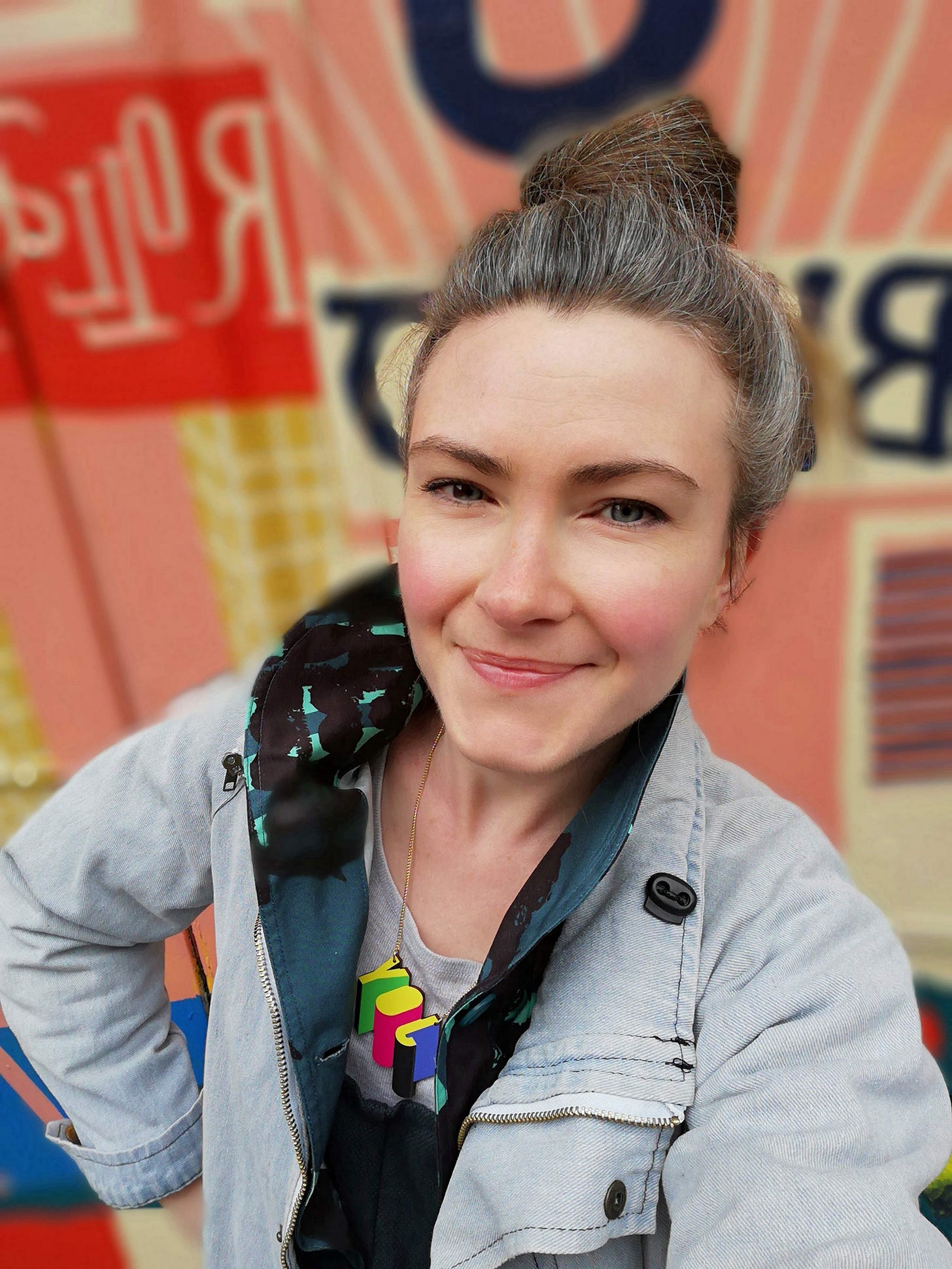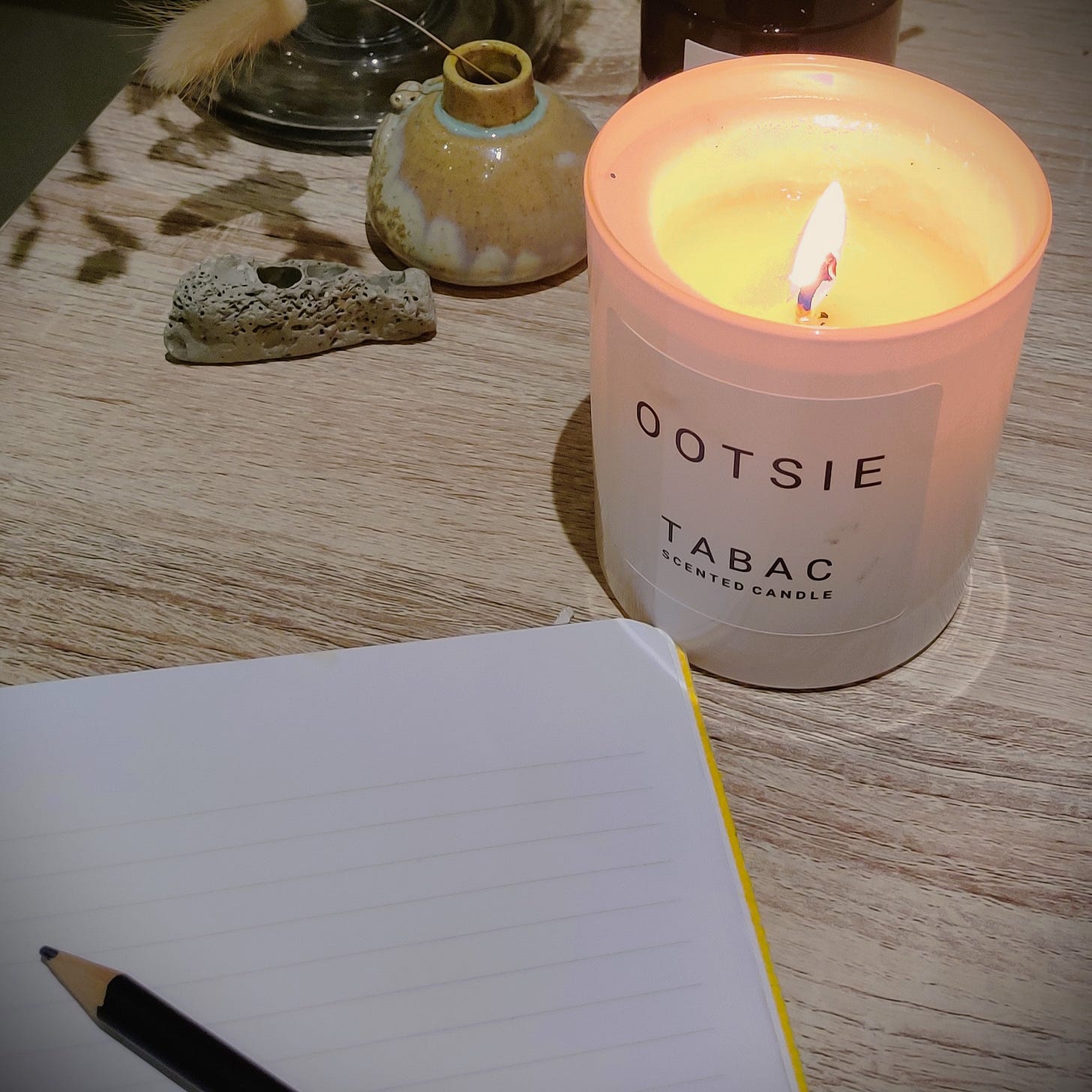12 days of Advent: a Substack Community Celebration #4
Tis the season to... gently journal. Let's lift our pen to boost mental and physical health with Lindsay Johnstone.
Hi, I'm Laura, and I’m a multi-passionate mama of 3, excited about demystifying creativity, obsessed with other people’s pivots and delighted by flat whites, long walks and learning.

I’ve come to know I can tell myself anything, too. Whatever I need to hear. Doing so doesn’t make any of it true. It doesn’t foretell disaster. In fact, it takes the power these beliefs may have had when constrained in my mind and thoroughly disarms them.
- Lindsay Johnstone
Welcome to the fourth day of our 12 days of Advent: a Substack Community Celebration. Planning this series has genuinely been as exciting as preparing my own home for Christmas. Today’s gift is from Lindsay Johnstone, who writes about perimenopausal, post-therapy midlife from her home in Glasgow, Scotland in What Now? with Lindsay Johnstone. She is interested in the complex interplay between creativity, the natural world and our mental health, as well as caring, mothering girls and breaking the cycle of inherited trauma. She is currently previewing and excerpting her memoir, Held in Mind, as a podcast for her Membership community on Substack alongside her Sunday words.
I very deliberately chose Lindsay’s piece to fall on this dark, wintery Sunday (it is cold and rainy here in the U.K. - I just cannot imagine the warmth and full-beam light my Australian community are experiencing right now - and my much-loved Aussie Uncle!) I hope you are able to take some time to explore her words, and, like her, to pick up a pen and write.
Lindsay writes…
Journalling for Better Mental (and Physical) Health
By the start of December here in the north of the UK, it's dark well before 4pm and I'm ready for bed only a few hours later. I'm often more tired at this time of year. Just the 'everyday' can feel hard physically and mentally, let alone these frantic ones before the festive break when I can't afford another virus. A prolonged dip in mood. Depleted, my thoughts often drawn to darker places, the call to the page rings loud and urgent. Specifically, the leather-bound ones of my current journal. I take it to the bedroom with me to escape the dishes still undone beside the sink (please tell me others’ domestic standards fall off a cliff in the run up to holiday season) and, as always, give myself permission not to predict the outcome of these short sessions.
I take my seat at the small desk, pen poised in my left hand which now hovers over a blank page. I put the date at the top. A sentence about the weather. I put the pen down.
I lift my gaze just beyond the window. There's less to see now the grand oak at the end of the drive is stripped of its leaves; its upper branches casting black jagged shapes against the cloudy, purplish city sky. The neon-topped high rises in the distance segue through a rainbow of colours. All those other lives. I'm not alone. Not the only one feeling overwhelmed. Stretched. I'm sure of that.
After a time, I snap out of my trance and recall why I’m here. I turn my attention to what is going on inside, lift my pen again and away I go.
It looks dreadful. My writing cannot keep up with my thoughts. I skip from one thing to another. Find words for the emotions that have threatened to overwhelm. Scare me witless. I turn towards those ugly feelings; the inconvenient and distressing ones, too. Offer up space for rumination. Catastrophe.
Where previously, an irrational superstition would have stopped me from allowing these thoughts into the actual world, now I see the diffusing power of giving them their place. It’s an evolution of my therapy experience, where for three years I was offered safe harbour, meted out in 50-minute chunks, to say anything. Anything. And I’ve come to know I can tell myself anything, too. Whatever I need to hear. Doing so doesn’t make any of it true. It doesn’t foretell disaster. In fact, it takes the power these beliefs may have had when constrained in my mind and thoroughly disarms them.
Writing like this regularly also benefits my physical health. Boosts my resilience against the season. I read a long time ago about the Pennebaker Method, which inspires my practice, soothed by the research that demonstrates a measurable impact on blood pressure and inflammation among other markers of health.
And so, today, I invite you to stop fighting the darker stuff. To give yourself the space and time to let it all out. It may feel counter-intuitive to do so. You may be, like me, scared to see these words written down. Confront what they reveal about your state of mind or current pre-occupations. And yet. I feel lighter – recalibrated and ready to face the next day – at the end of each of these short sessions. Ten minutes. Fifteen, sometimes, is enough. I draw a line, place my pen down and close the journal.
I'll be back tomorrow. Will you?
Wow Lindsay Johnstone , I need a minute to process that. What a powerful piece of writing!
Now of course you now I’d love to start a conversation about journalling. How does it make you feel when you do it? How do you feel when you don’t do it?
See you in the comments,
Laura x








Beautiful! Thank you Lindsay. I always feel more connected when I journal, and it always opens up a doorway to creativity... but I do fall away from it at times and then when I return I remember just how powerful it is!
This is so beautiful. I absolutely loved this part: Where previously, an irrational superstition would have stopped me from allowing these thoughts into the actual world, now I see the diffusing power of giving them their place. It’s an evolution of my therapy experience, where for three years I was offered safe harbour, meted out in 50-minute chunks, to say anything. Anything. And I’ve come to know I can tell myself anything, too. Whatever I need to hear. Doing so doesn’t make any of it true. It doesn’t foretell disaster. In fact, it takes the power these beliefs may have had when constrained in my mind and thoroughly disarms them.